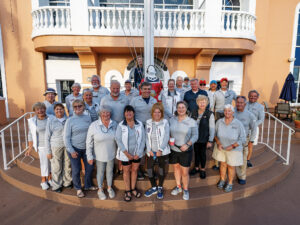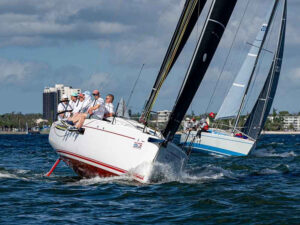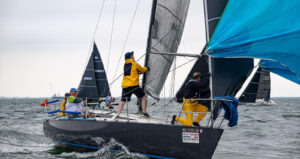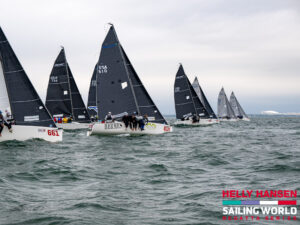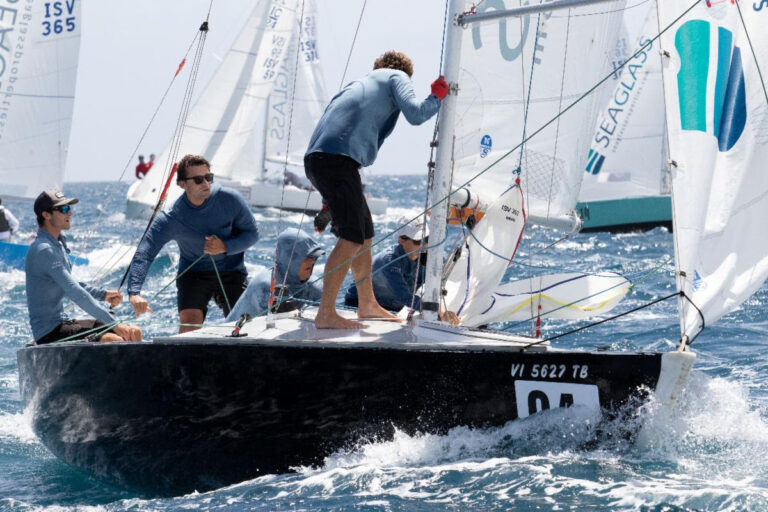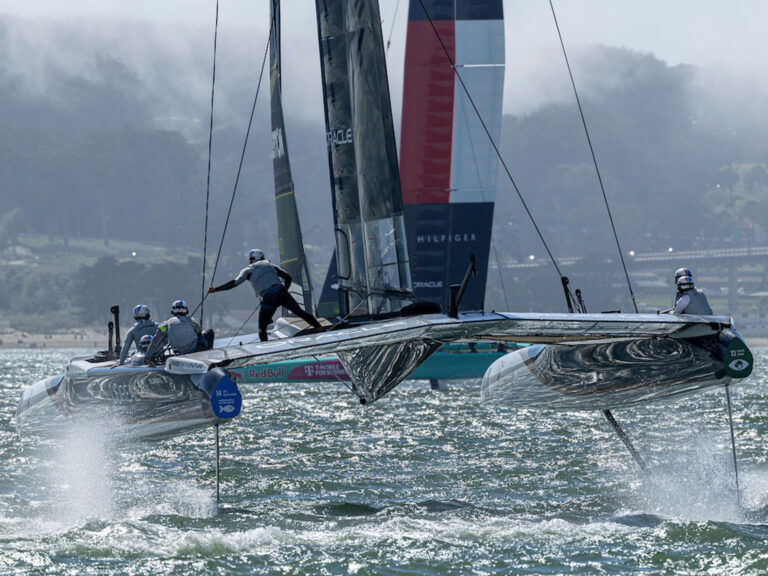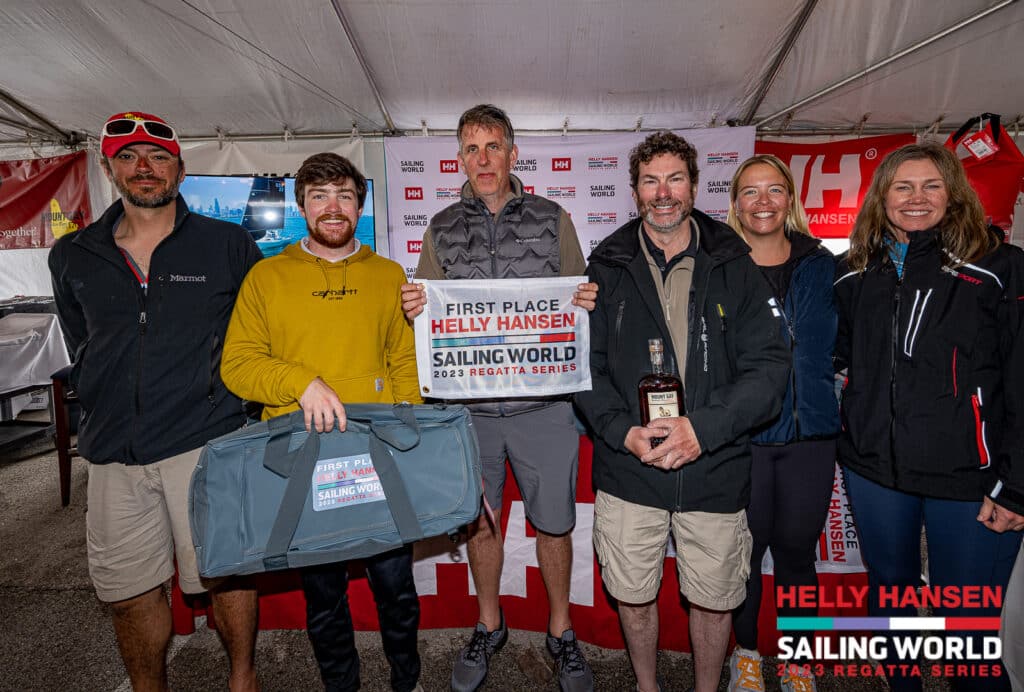
Inside Chicago Harbor, the northerly wind blowing through the protected mooring field was deceiving. Conditions appeared benign enough to send the sailors out for the final day of the Helly Hansen Sailing World Regatta Series in Chicago, but out beyond the breakwater, whitecaps frothed and the weather stations reported the truth: it was gnarly out on Lake Michigan, just too much for safe racing. Ahead of the official 0900 morning signals, organizers made the preemptive call and hoisted signal flag N over signal flag A on the yardarm: Racing was abandoned and the previous day’s preliminary results were toggled to final. With two solid days of racing in the books, the regatta came to early close, but competitors were happy to have a complete series.
From among the winners of 17 individual classes and 162 teams, one overall winner was later selected to represent the Chicago regatta at the Helly Hansen Sailing World Caribbean Championship in October.
Jeffrey Davis, skipper and owner of the J/111 Shamrock, emerged as the challenger and while his team delivered the boat back to its homeport of Cleveland, Ohio, the veteran skipper shared his thoughts on the weekend’s races and the developing dynamics of his winning crew of Bob Knestrick, Danny Corrigan, Samantha Foulston, Stu Johnstone, Michael Lis and Travis Odenbach. Shamrock won five of six races.
Sometimes, winning a three-boat fleet can be just as difficult as a larger fleet, especially when everyone’s at the same level, like it was for the J/111s this weekend in Chicago.
Yes, we’ve raced against each other in the past, so they’re fairly well-matched boats. The J/111 class is fairly strict, so we’re very competitive, all of us. I think this weekend was really a function of the fact that we tend to be light-air sailors and inland like sailors, and so for us, we really thrive in these kinds of conditions.
Flat water, light air, shifty conditions are your strength then?
They really are. The boat is really set up for light air. I think the crew, we’ve all been sailing together probably for about 15 years. And since our base is in Cleveland, Ohio, for us, it’s a light-air lake. So, these conditions really fit our boat, our rig, our tune and ourselves. We set up the boat for light breeze. But as most sailors know, you gotta pick the shifts. And there’s a little bit of luck involved.
In the first and second race, we did a good job of really picking the right shifts and the right side of the course to be on and we had good starts. In the third race, we wound up second and it was really a function of us being on the wrong side of the course. And it’s really hard to come back from that. You know, when your competitor keeps picking the right shifts, you just never catch up.
Having only two boats to beat, how did that change the tactical approach to the weekend?
We tended to stay pretty close together, in part because we’re using this for North Americans, which will be here at the Chicago Yacht Club later in the year. So, we wanted to see what kind of conditions we would have and what kind of conditions that we would be competing in and what the setup of our boat was going to be like compared to others. There was a little bit of match racing going on and a little bit of that in terms of our tactics.
Speaking of tactics, you had a new crew calling the shots this weekend.
We did. We’ve been sailing for about 15 years with Wally Cross who was unable to sail this regatta, so we had a new tactician. Travis just did a great job. He built on what we have been working on with Wally at Quantum Sails, and Travis just expanded the base for us. He brought in some new ideas, but he amplified some of the things that we normally do.
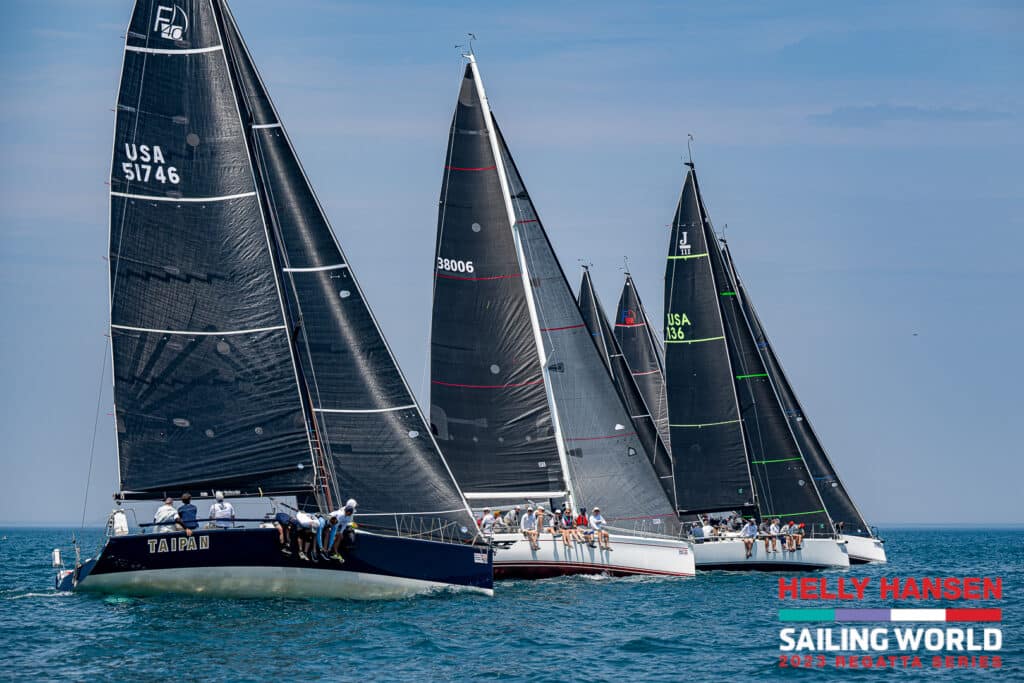
What were some of his ideas that made a difference over the weekend?
We’ve spent a lot of time maybe over tweaking the rig. He was more inclined to just set the rig to the standards that we have developed and not make as many changes. His focus was a little bit more on tactics, especially the start.
Did you notice the change from the first day of racing into the second?
I think each day and each race we got better and the chemistry developed more. We did have one day of practice which helped us a lot. Then, what you gradually see is we’ve developed a language. After you’ve been sailing with somebody like Wally Cross and the same team for 15 years, you get accustomed to the communication style everybody has. Travis was new and he had to try to adapt to our communication style and we had to adapt to his. It made a huge difference once we started getting on the same language especially in the starts and the comfort in the corners. The corners are where you’re usually gonna mess up. And because we all spoke the same language and we got more comfortable with each other, it just got smoother and the crew work got better.
You’ve got a big event coming up later this summer.
We do have North Americans coming back here and it’s something that we’ve been working on for most of the year. Last year we had a very disappointing North Americans for us. It was based in Cleveland, but we were over early in the first two races and the fleet is so tight and so competitive. We wound up fourth, but this year, we’re really looking forward to coming back and we’ve got something to prove.

